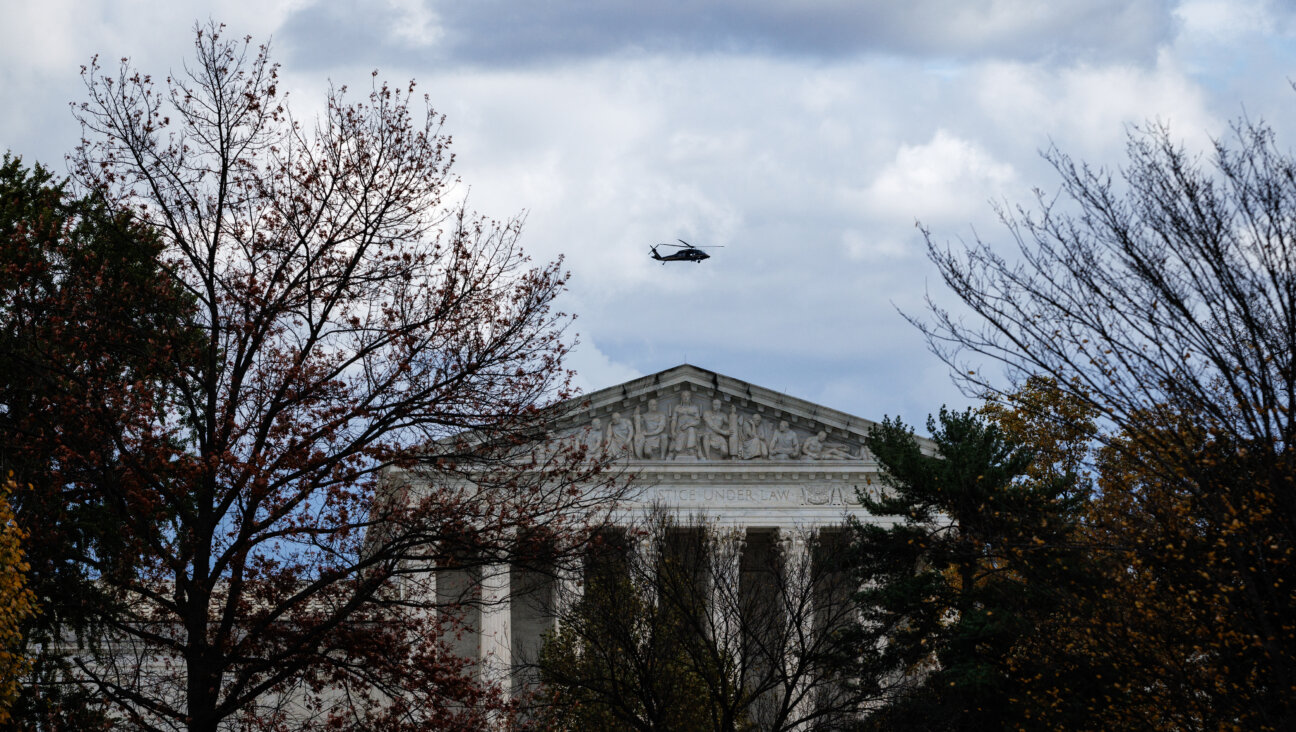‘Excessive’ Force Criticism Irks Israelis Ahead of John Kerry Trip

Image by Getty Images
State Department suggestions that Israel might be using excessive force to confront a wave of Palestinian stabbing attacks drew sharp criticism on Thursday from senior Israeli cabinet ministers.
Defense Minister Moshe Yaalon accused Washington of “misreading” the Israeli-Palestinian conflict and he said shooting knife-wielding Palestinians was self-defense. Public Security Minister Gilad Erdan called the U.S. remarks “foolish.”
With U.S. Secretary of State John Kerry due to travel to the Middle East soon to try to calm the violence, Israeli officials said Prime Minister Benjamin Netanyahu swiftly ordered cabinet ministers to say no more publicly about the latest acrimony in a long-troubled relationship with the Obama administration.
Seven Israelis and 32 Palestinians have been killed in the past two weeks of bloodshed, including 10 assailants, as well as children and protesters shot in violent anti-Israeli demonstrations.
The violence has been partly triggered by Palestinians’ anger over what they see as increased Jewish encroachment on Jerusalem’s al-Aqsa mosque compound, which is also revered by Jews as the site of two destroyed biblical Jewish temples.
At a daily press briefing on Wednesday, State Department spokesman John Kirby said Israel, which has set up roadblocks in Palestinian neighborhoods of Israeli-occupied East Jerusalem to try to stem attacks, has a right and responsibility to protect its citizens.
But he added: “Now, we have seen some – I wouldn’t call the checkpoints this – but we’ve certainly seen some reports of what many would consider excessive use of force.
“Obviously, we don’t like to see that, and we want to see restrictions that are elevated in this time of violence to be as temporary as possible if they have to be enacted,” Kirby said, without citing specific incidents.
PALESTINIAN ALLEGATIONS
The comments touched a nerve in Israel, which has angrily denied Palestinian President Mahmoud Abbas’ allegations that it was “executing our sons in cold blood.”
Asked on Army Radio about the U.S. remarks, Yaalon said: “Are we exercising excessive force? If someone wields a knife and they kill him, is that excessive force? What are we talking about?”
Israeli Justice Minister Ayelet Shaked said police in the United States would act no differently in drawing their guns and using them if necessary.
“If people with knives were roaming the streets of New York and started stabbing people, they would not be asked to present their ID’s, and the NYPD would draw their weapons,” she said on Israel Radio. “The U.S. administration can say whatever it wants – and we will do what is needed.”
Hours after the Israeli roadblocks went up on Wednesday, a Palestinian stabbed and wounded a 70-year-old woman outside Jerusalem’s central bus station before a police officer shot him dead. Palestinian officials describe the roadblocks as collective punishment.
Prior to that incident, another Palestinian was also shot dead after he had attempted to stab paramilitary police at an entrance to Jerusalem’s walled Old City, police said.
Israel has deployed 300 soldiers in Jerusalem and throughout the country to try to stop the most serious eruption of Palestinian street attacks since an uprising a decade ago.
Many Palestinians are frustrated with the failure of years of peace efforts to bring them statehood and end Israeli settlement-building in the West Bank and East Jerusalem.
The powerful Islamist group Hamas, which advocates Israel’s destruction, has been vocal in supporting the current attacks, and it called for “rallies of anger and confrontations” to be held in West Bank cities after Friday Muslim prayers.
In his radio interview, Yaalon repeated an appeal to Israelis with gun licenses to carry their weapons.
“Whoever doesn’t have (a gun), should use whatever he has – it can be a club, an umbrella, anything – that can ward off the stabber and neutralize him,” he said.
A message from our CEO & publisher Rachel Fishman Feddersen

I hope you appreciated this article. Before you go, I’d like to ask you to please support the Forward’s award-winning, nonprofit journalism during this critical time.
We’ve set a goal to raise $260,000 by December 31. That’s an ambitious goal, but one that will give us the resources we need to invest in the high quality news, opinion, analysis and cultural coverage that isn’t available anywhere else.
If you feel inspired to make an impact, now is the time to give something back. Join us as a member at your most generous level.
— Rachel Fishman Feddersen, Publisher and CEO























